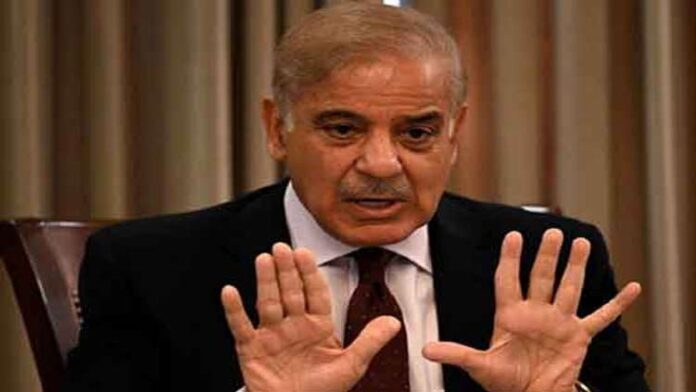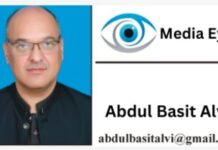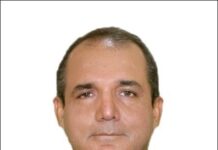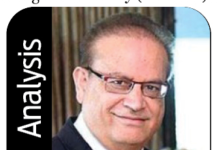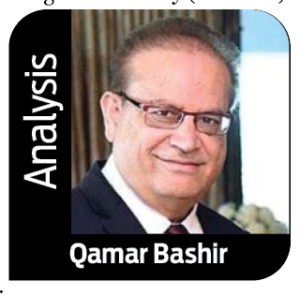 I am the Prime Minister for another thirty days said the Mr. Shahaz Sharif during recently held ceremony in Islamabad, putting cold water on all rumors, conjectures, guesses, and numerous predictions including; the elections would be postponed indefinitely, the incumbent governments would continue for at least one more year despite the constitutional requirement of holding elections after 60 days of dissolution of the assemblies and the formation of a technocratic government for indefinite period. Shahbaz Sharif proved all of these extra-constitutional speculations wrong by announcing that his government will only be in power for another month but before announcing his intention to step down he put everything in order which was essential for winning the upcoming elections including making a fundamental change in the election laws to give the power to announce the date for election to the Election commission by doing so he kept the option open of delaying the election if deemed appropriate and if the political situation takes a nasty turn.
I am the Prime Minister for another thirty days said the Mr. Shahaz Sharif during recently held ceremony in Islamabad, putting cold water on all rumors, conjectures, guesses, and numerous predictions including; the elections would be postponed indefinitely, the incumbent governments would continue for at least one more year despite the constitutional requirement of holding elections after 60 days of dissolution of the assemblies and the formation of a technocratic government for indefinite period. Shahbaz Sharif proved all of these extra-constitutional speculations wrong by announcing that his government will only be in power for another month but before announcing his intention to step down he put everything in order which was essential for winning the upcoming elections including making a fundamental change in the election laws to give the power to announce the date for election to the Election commission by doing so he kept the option open of delaying the election if deemed appropriate and if the political situation takes a nasty turn.
The tenure of Shahbaz Sharif as Prime Minister after he was sworn in by the Acting Chairman Senate on April 11th is nothing short of a miracle. During his brief stay in power, from April 2022 to August 2023, he was able to maintain his reputation as a doer, an exceptional negotiator, a problem solver, and his capacity to remain calm and composed in the face of even the most challenging circumstances. He had the remarkable ability to observe patience, lead his team along, and steadily collect speed while keeping the ground realities in mind, without ruffling the feathers too much, and after the engine was fully warmed up, put the throttle to the ground.
During his brief, tumultuous, and eventful tenure, he overcame numerous foes and hit numerous milestones, which he could only have accomplished with so many forces pulling him back and dragging him to the ground. One of his greatest challenges upon assuming power was to keep the Pakistan Democratic Movement (PDM) in good spirits and to keep it focused and determined. PDM, which was a mixture of many ingredients and had a tendency to fall apart quickly, remained not only intact but also kept on moving in the right direction, which suited the PDM, the Prime Minister, and the country.
After PDM, the second greatest challenge was to bring the country safely out of its precarious financial and economic predicament, which appeared difficult, and the country was on the verge of default without a solution in sight. Muftah Ismael who had no stake in the political career was able to convince IMF to restore the stalled loan and took many deep and vial surgical financial operations and raised the prices of utilities, essential commodities, taxes and put curb on imports and when the people had settled down with the measures, Ishaq Dar descended from the heaven and in his arrogance and overconfidence overturned many of the steps taken by Muftah and ended up annoying IMF so much that it even declined to discuss the restoration of stalled installments, which slowed down the economy, the essential raw material and machinery desperately needed to keep the economy running and were stuck in the ports for months and closure or slow down of many industries, the inflation touched all time high, value of the rupee nose dived, unemployment skyrocketed, the friendly countries except china refuse to roll out deposits and tied it to signing of IMF deal. Ishaq Dar’s unwarranted and mindless intervention kept the economy unnecessarily in great pain and losses until Shahbaz Sharif came to the rescue, charmed the IMF chief during his meeting in Paris, assured her to comply with all IMF conditions, and ultimately obtained her consent to restore the IMF program. As a result, he saved the Pakistani assets that Ishaq Dar had lined up and was prepared to sell, thus saving the country from imminent default, and paving the way for roll out of deposits by Saudi Arabia, UAE and China.
Mr. Shabaz Sharif took a great care to bring in much needed investment in the country and in his effort he sat up a Special Investment Facilitation Council (SIFC) with the Army Chief in the Centre place to target vital sectors such as defense production, agriculture, livestock, minerals, mining, information technology, and energy and serve as the apex body to ensure economic growth, increase global competitiveness, attract foreign direct investment (FDI), and stimulate job creation, all of which will contribute to national stability and security. Soon after its formation, SIFC took swift actions and in a matter of hours if not days four terminals of Karachi ports were sold to a Dubai-based company for a lease of more than 30 years. SIFC’s second decision was to auction Pakistan Steel Mills, which is expected to be completed soon. It launched a third project, the Livestock and Dairy Modernization and Improvement Support (LIMS) Program on 8th of July, which aims to introduce modern agro-farming to increase the profitability and productivity of Pakistan’s livestock and dairy industries. Only two days after the launch of LIMS, SIFC introduced its fourth prefabricated project, “the Green Pakistan initiative,” aimed at bringing in billions of dollars in investment in Pakistan in months, if not days.
As an impact of the restoration of the IMF program, deposits were rerolled by China, KSA and UAE, the stock exchange which saw one of its most depressing moments during the tenure of this government rebounded with vengeance and broke many previous records. The Rupees showed a sign of life and made substantial gains against the dollar. The Prime Minister, and PDM took a sigh of relief after the economy was back on track and gave them enough confidence to announce general elections as per constitution.
The Prime Minister overcame the most critical barrier before committing to elections. He effectively neutralized the noisy, overbearing, arrogant, and intoxicated PTI Chairman, whose popularity was reaching new heights across the country with no precedent in the past or present. Riding the popular wave, he was overconfident in winning elections with a big majority whenever they were held, and all previous polls supported his estimates. With his legendary cool and calm demeanor, Prime Minister vanquished him politically and administratively. First, he persuaded him to quite the National Assembly and leave the floor of the parliament completely at the mercy of the PDM, who then brought many amendments in many laws that suited their objectives of first remaining in power, exonerating their leadership from corruption charges, weakening the NAB and judiciary, and bringing in necessary legislations in election laws to grill the opposition and ensure smooth sailing to the government.
The Prime Minister outmaneuvered the PTI chairman with the support of the former army chief by pushing him to dissolve the PK and Punjab assemblies, which he did because of his demonstrated lack of political savviness and exposed himself to a slew of hazards. After establishing his own caretaker governments, the PM deployed the full state apparatus against the PTI chairman and the PTI, inflicting lasting damage on them. The final nail in the coffin was driven by the unfortunate incident of May 9 when over 200 defense installations were attacked by the angry mobs, most likely as a result of premeditated planning devised by retired army generals who, by nature of their training, believe that everything can be solved through kinetic use of power, completely ignoring the fact that in political struggles, there is no option to resort to violence, especially against a professional and powerful military.
It was really sad that, for the first time in Pakistani history, retired army officers and serving officers were punished by administrative measures for displaying indifference while defending army sites. This infuriated the army to the point where a county-wide crackdown on the violent demonstrators was launched without mercy, and is still ongoing with no sign of abating. As a result, all PTI supporters, workers, and sympathizers are either in jails, have denounced their allegiance to the Chairman or the party, have gone into hiding, or have fled abroad, leaving the Chairman vulnerable and wounded, and the party completely shattered and in domes. It will only be a matter of days before the visibly agitated, frightened, and panicked PTI chairman, who is currently devoting all of his resources on defending over 175 cases rather than working on a political plan, is behind bars.
The next formidable obstacle was the superior judiciary, which was perceived to be on the side of the PTI Chairman and the PTI, and which allegedly thwarted many government plans and initiatives to fix the PTI Chairman and the PTI. The Prime Minister launched a three-pronged attack on the Judiciary and realigned it successfully. The government, legislatures and politicians, with the tacit support of the establishment, succeeded in creating an irreparable rift between the sitting judges of the supreme court, who did everything in their power to undermine, insult, and undercut each other, providing the government, legislature, and politicians with much-needed fuel to criticize the judiciary, disobey its specific orders, and even successfully prevent it from carrying out its constitutional duties and contempt of court proceedings against the government which if it had done, could have been the end of this government, like that of Yousaf Raza Gilani.
One of the most formidable challenges for the Prime Minister was also to maintain the establishment in good humor and spirit. There were many don’ts but few do’s when dealing with the establishment: don’t question their authority, don’t interfere with the way political and law and order assets are handled, and don’t create a financial liquidity crunch for them. The few dos were straightforward: act when they say and stop when they say. During his brief tenure, the Prime Minister was able to adhere to both the letter and the spirit of the dos and don’ts, and was able to use the clout and efficacy of the army to secure financial assistance from China, Saudi Arabia, and the United Arab Emirates, as well as attracting substantial investment from KSA and UAE, and above all, use their wrath to ensure the PTI chairman and ground PTI.
The media was the next formidable adversary that the Prime Minister subdued with great precision by employing both carrots and sticks. Numerous financial resources were approved for the launch of advertisement campaigns, diverting much-needed funds to the media houses, while the coercive powers of the PEMRA Chairman and PEMRA, as well as the unlisted powers of the establishment, were used effectively and prudently to wipe out PTI Chairman and the PTI from conventional media. Identical measures were taken against social media; the IP addresses of the most influential PTI social media activists were obtained and they were warned to stop injecting poisonous content; those who did not comply were dealt with administratively. The social media companies were instructed to expunge and prohibit the uploading of videos and other content with political overtones. This allowed the government to entirely realign traditional and social media.
Shahbaz Sharif has improved his resume and acquired a great deal of confidence to reapply for the premiership position compared to other potential candidates such as Maryam Nawaz, Bilawal Bhutoo, and Jehangir Tareen. His ability to overcome all obstacles necessary to win the election within sixteen months is admirable. He successfully neutralized the PTI Chairman and the PTI, realigned the judiciary, NAB and the media, restored the economy, attracted substantial investment, kept the establishment in high spirits, and maintained the unity of the PDM. After creating all necessary enabling conditions, it was time to announce elections on time, as any delay would have allowed the PTI chairman to gather strength and the party to resurrect. In Pakistan, you never know when the wind’s direction will change for the best or for the worse.
The author is the former Press Secretary of the President of Pakistan, the former Press Minister of the Embassy of Pakistan in France and also has been the former MD / CEO Shalimar Recording and Broadcasting Company (SRBC)
